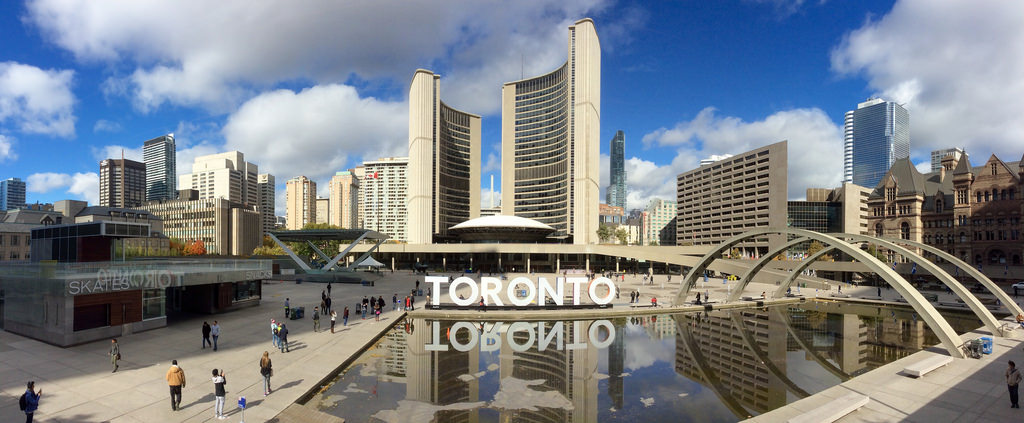
I recently watched the some of the worlds best athletes compete in the winter Olympics. I do not normally watch sports, but I love winter and it is nice to see all the various events. The athletes all have inspiring stories and have been sharing their journeys that brought them to the Olympics and where they are today.
Something fun to try, let’s compare different real estate investing strategies to the various winter Olympic sports. Most of us start off by buying single family homes which could be compared to speed skating. There are many important things that you need to do to train and compete well, but the actual event of speed skating is quite simple. Buying multi-family properties, however, may be compared to cross country skiing, as there are many things to understand, a lot of disciplines to master, and in the end the actual event is complicated and will take longer than a simple sprint.
Now if I had to choose an event most like development, I would have to say it would be figure skating (Go Canada eh), which consists of using all the skills in the other sports packed into 5 minutes of action. A little bit of speed skating, cross country skiing, freestyle events, jumping, creativity and throw in some hockey maneuvering. The winner being the person that accumulated the most points based on their skills. To win at figure skating, you must have some skill in all these events and be able to combine those skills into a 5-minute presentation on ice with your partner. Just like figure skating, judges award more points for attempting a hard jump and stumbling a bit than by successfully landing a super easy jump.
If you want to go into real estate development, there are many sports you need to understand such as financing, engineering, legal agreements, subdivision / condominiums applications, finding investment partners and so on. We would say one of the key areas you need to get good at is “navigating city hall.”
City hall can either be a great partner that either makes the process easy – their systems and ability to see the big picture with minimal bureaucratic process can have a very real impact on both your success and your profit. Alternatively, city hall can feel like there are too many processes, bureaucratic, disorganized and staff are trying to create road blocks to delay your project. My business partner, Mike and I have accumulated all our development experience within Toronto, Ontario, which unfortunately is the latter of the two.

From our experience we have some tips and tricks for you below to help you navigate city hall and win a medal as a real estate figure skater.
- Respect the city staff’s time. In most municipalities the staff are very busy with piles of work on their desk, so when you go in please make sure that your prepared and concise. Try to build relationships, quick chat for a minute or two which means pleasantly asking about their vacations, kids, etc. and then dive directly into the reasons why you are there. Try and stay away from theoretical conversations. Keep it to your specific project and what is the likely outcome. Treat the city staff professionals with respect by not wasting their time. You don’t want the staff rolling their eyes when you walk in because they know they know you are going to waste a bunch of their time.
- City staff are not there to create your vision. The reality is that it is not their job to dream with you or find creative ideas for your development. If the staff did, it could clearly create a system with loads of conflict of interest. Their role is to tell you if your ideas are within the boundaries of the city bylaws and provincial legislation. They may offer suggestions to be in line with the best interests of the city but expecting more from them is not feasible.
- When purchasing a property, if possible, try and use your relationships at the city by having a brief meeting with your contacts before you submit your offer. When we are purchasing a property and after we have done our high-level analysis, 1) We draw up a quick sketch of what we want to do 2) Meet with the right people at city hall to get their input 3) Ask questions about the staffs view the proposal, zoning, and any issues that are not foreseeable to us. This meeting usually needs to be scheduled but will only last 15 to 20 minutes. For larger and more complicated projects we set up a formal meeting with the city staff and the various city departments to provide input on our proposal.
- Hire and use great consultants. City staff live and work in an environment that is bogged down in rules and is driven by legislation and bylaws. As developers we know a little about everything but are not involved in the high-level discussions that the consultants and city staff tackle every day. As developers we are at a disadvantage and we must put in the time to level the playing field by educating ourselves on the legislation and various bylaws. City staff do their best to tackle all the issues, but they do make mistakes, that is why we employ consultants as a second set of eyes. They are hired to be our advocate and to make sure we can maximize what we want to do in any given development. They are also our eyes and ears and there to help explain why or how something is going to happen. They have vast experience and they can see blind spots or challenges that we may not see and they ask questions that we may not have thought to ask, thereby making the project go smoothly.
- Delays happen, learn to expect them. There is too much going on for the city staff to see all angles of the project from start to finish which is what the site plan process is there to solve. Can you plan and execute an incredible vacation to somewhere you have never been in 10-15 minutes? Sure you might get lucky and pull it off, but chances are there will be a few missed items along the way. You can’t expect the city staff to foresee all the costs, roadblocks, hurdles, and requirements at the beginning. Accept that delays and unknown problems will come up and be prepared to tackle them head on. This sounds hard, but it comes down to how well you handle adversity and your mental attitude through the process. In real estate development, there are just things that you just can’t plan for which makes the risks and profits higher.
- Put relationships first. You are working with various professionals that are highly educated with various prestigious designations. Treat them unkindly, you can expect that it will bite you sometime in the future. Yes, the city staff will make mistakes, but in most circumstances, they do their best to correct those mistakes and they help you when needed. Be patient and understanding when others make mistakes and it will come back to you in the future. This will be great for your working relationship with the city staff and with your consultants.
In another post we will tackle some of the other key areas to navigate city hall.
That is it for now
Remember your lifestyle is up to you!
